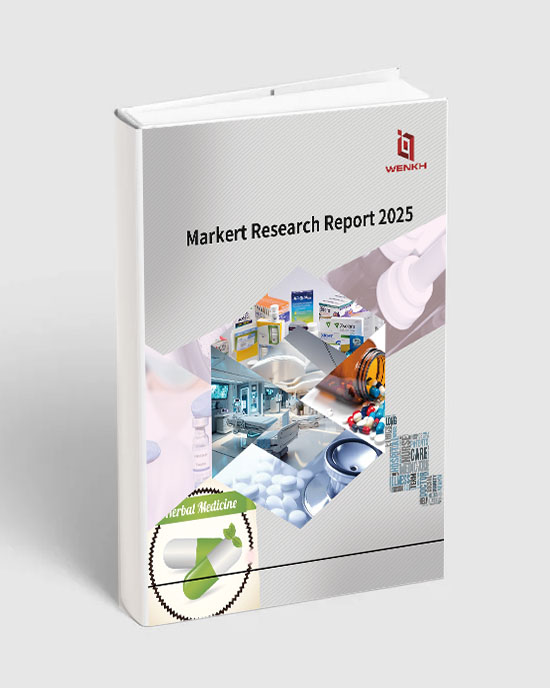
Global COVID-19 Serology Testing Market Size, Competition Landscape and Supply Chain Research Report 2025



Research Summary
COVID-19 serology testing, also known as antibody testing, is a diagnostic method that detects the presence of specific antibodies in a person's blood, produced by the immune system in response to the SARS-CoV-2 virus, which causes COVID-19. Unlike PCR tests that identify the virus's genetic material to diagnose active infections, serology tests assess past infections or immune responses in individuals. These tests use a blood sample, typically obtained through a finger prick or venous draw, and can identify two types of antibodies: immunoglobulin M (IgM), which indicates recent or early-stage infections, and immunoglobulin G (IgG), which suggests past infection or potential immunity. Serology testing helps public health authorities understand the spread and prevalence of the virus in populations, assess the effectiveness of vaccination efforts, and identify individuals with potential immunity. However, it's essential to note that a positive antibody test does not necessarily guarantee immunity, and the duration of immunity is still under study. Therefore, serology testing should be used in conjunction with other diagnostic methods to better understand the dynamics of COVID-19 infections and immunity in communities.
According to WENKH research statistics, the global COVID-19 Serology Testing market sales revenue reached Million USD in 2024 and is expected to reach Million USD by 2032, with a compound annual growth rate (CAGR) of % from 2025 to 2032. Among them, the Asia-Pacific COVID-19 Serology Testing market has experienced rapid changes in recent years, reaching Million USD in 2024, accounting for approximately % of the global market share. It is projected to reach Million USD by 2032.
The global COVID-19 Serology Testing market is highly competitive, with key market players including Abbott, Guangzhou Wondfo Biotech, BioMedomics, Kantaro, Roche, Cellex, Innovita Biological Technology, Zhejiang Orient Gene Biotech, Ortho Clinical Diagnostics, Guangdong Hecin-Scientific, Dynamiker Biotechnology (Tianjin), Safecare Bio-Tech, Chembio Diagnostics, etc. This report categorizes the competitive landscape of the global COVID-19 Serology Testing market into three tiers based on annual revenue, with the top three market players holding approximately % of the total market share.
This report provides an in-depth analysis of the global COVID-19 Serology Testing market, including market size, price trends, market status and future development prospects. It particularly focuses on the market share, product characteristics, pricing, sales revenue, and gross profit margin of major players in the global COVID-19 Serology Testing industry. Additionally, this report provides an in-depth analysis of the market status and future development trends of different product segments of COVID-19 Serology Testing and their downstream application fields.
In terms of data, this report includes a comprehensive time-series dataset. The historical data spans from 2020 to 2024, providing a solid foundation for analyzing past market trends. The year 2025 is used as a base year to accurately assess the current market landscape. Forecast data covers the period from 2026 to 2032, utilizing scientific analysis methods and models to offer forward-looking predictions and insights into the market's future development. This provides valuable reference information for industry participants and stakeholders.
The report covers regions and countries including North America, Europe, China, Asia Pacific (excluding China), Latin America, the Middle East, and Africa. It particularly focuses on the sales revenue of COVID-19 Serology Testing in these regions and countries, as well as the market share of key market players in each region. The report provides an in-depth analysis of the regional distribution and future development trends of the COVID-19 Serology Testing market. By considering local policies, this report evaluates the market prospects of COVID-19 Serology Testing in each region and country, aiming to help companies gain a comprehensive understanding of the industry characteristics and development potential in different regions, optimize regional business layout, and develop precise market strategies to achieve global development goals.
This report places a strong emphasis on data quality and reliability, utilizing diverse and extensive data sources to ensure the accuracy and validity of the information presented. Primary data collection involves multiple channels, including in-depth interviews with senior executives, industry experts, supply chain stakeholders, and end consumers. These interviews provide key insights into corporate strategic planning, industry policy interpretation, supply chain dynamics, and end-user experiences. Secondary data sources cover a wide range of authoritative statistics from government agencies, customs databases, industry associations, third-party paid databases, brokerage research reports, academic research findings, corporate annual reports, financial statements, real-time news updates, and relevant information from international organizations. These data sources serve as a solid foundation for verification and analysis.
Companies Covered
Abbott
Guangzhou Wondfo Biotech
BioMedomics
Kantaro
Roche
Cellex
Innovita Biological Technology
Zhejiang Orient Gene Biotech
Ortho Clinical Diagnostics
Guangdong Hecin-Scientific
Dynamiker Biotechnology (Tianjin)
Safecare Bio-Tech
Chembio Diagnostics
Product Segment
Rapid Diagnostic Test (RDT)
Chemiluminescent Immunoassay
Other
Product Application
Hospitals
Third-party laboratory
Chapter Scope
Chapter 1: Product Statistical Scope, Product Segmentation Types and Downstream Applications, Overall Market Size, Current Status and Development Prospects
Chapter 2: Global COVID-19 Serology Testing Industry Chain Analysis
Chapter 3: Global COVID-19 Serology Testing Industry Environment Analysis and Porter's Five Forces Analysis
Chapter 4: Analysis of the Competitive Landscape of Major Companies in the Global COVID-19 Serology Testing Market (Market Share, Product Revenue Comparison, Tier Division, Corporate Expansion and M&A Trends)
Chapter 5: Analysis of Global Major Companies (Company Profiles, Product Features and Product Segment, Product Revenue, Product Average Price, Gross Profit Margin and Geographical Sales Share)
Chapter 6: Global COVID-19 Serology Testing Product Segment and Downstream Application Size Analysis and Major Regional Market Size Analysis
Chapter 7: North America COVID-19 Serology Testing Product Segment, Downstream Application, and Major Countries Market Size Analysis
Chapter 8: Europe COVID-19 Serology Testing Product Segment, Downstream Application, and Major Countries Market Size Analysis
Chapter 9: China COVID-19 Serology Testing Product Segment, Downstream Application, and Major Countries Market Size Analysis
Chapter 10: Asia Pacific (excluding China) COVID-19 Serology Testing Product Segment, Downstream Application, and Major Countries Market Size Analysis
Chapter 11: Latin America COVID-19 Serology Testing Product Segment, Downstream Application, and Major Countries Market Size Analysis
Chapter 12: Middle East and Africa COVID-19 Serology Testing Product Segment, Downstream Application, and Major Countries Market Size Analysis
Chapter 13: Research Conclusion
Chapter 14: Methodology and Data Source
Purpose and Value of the Report
Market Trend Insights: Analyze industry trends, market dynamics, and future growth potential to help companies forecast changes and develop strategic plans.
Competitive Landscape Analysis: Understand key players' revenue segmentation, strategies, market share, and business models to guide competitive decisions.
Investment Decision Support: Provide feasibility analysis through market size, growth rate, demand trends, and potential risks for informed investment decisions.
Target Customer and Demand Analysis: Examine consumer behavior, purchasing preferences, and pain points to optimize products and improve market penetration.
Policy and Regulatory Insights: Interpret relevant industry policies to ensure compliance and mitigate regulatory risks.
Business Model Optimization: Offer data-driven suggestions for enhancing business models and improving profitability.





